21 March 2025
How to avoid worker misclassification in Spain and its consequences
Worker misclassification occurs when businesses treat individuals who should be employees as independent contractors, or vice versa. In Spain, where labor laws heavily protect employee rights, misclassifying workers can lead to significant legal, financial, and reputational consequences.
Whether due to lack of understanding or a deliberate attempt to reduce costs, misclassification often results in fines, back payments, and the potential for disputes with Spanish labor authorities.
This article provides a comprehensive guide to understanding the difference between employees and independent contractors, the penalties associated with misclassification, and the steps businesses can take to ensure compliance with Spanish labor laws. It also explores how an Employer of Record can simplify compliance and prevent costly mistakes.
Employee vs. independent contractor: understanding the difference
In Spain, the distinction between an employee and an independent contractor hinges on the nature of the working relationship and the level of autonomy the individual has in performing their tasks. While both employees and contractors contribute to business operations, their legal classifications—and the obligations that come with them—are vastly different.
An employee typically works under the direction and control of the employer. They have set working hours, perform tasks as instructed, and often rely on company equipment or resources to complete their duties. Employees are entitled to numerous protections under Spanish labor laws, including paid holidays, sick leave, social security coverage, and severance pay in the event of dismissal.
An independent contractor (often called an autónomo in Spain) operates more independently. Contractors typically set their own schedules, work on a project-by-project basis, and use their own tools or resources. They are responsible for their own tax filings and social security contributions, and they do not receive the same benefits or legal protections as employees.
Key factors Spanish labor authorities consider when evaluating worker status include:
- Control: Who sets the working hours and tasks? If the employer dictates these terms, the individual is more likely to be an employee.
- Integration: Does the worker perform tasks integral to the company’s core operations? Higher integration often points to an employer-employee relationship.
- Tools and resources: Does the worker use company-provided equipment, or do they operate independently with their own tools?
- Payment structure: Are payments fixed, resembling a salary, or are they project-based and tied to deliverables?
By analysing these factors, Spanish labor authorities determine whether a worker has been misclassified, which brings us to the potential consequences of getting it wrong.
The legal consequences of worker misclassification in Spain
Misclassification isn’t just a simple paperwork error—it can lead to serious legal and financial repercussions for businesses operating in Spain. Employers who fail to classify workers correctly can face the following consequences:
- Financial penalties: Spanish authorities impose steep fines on companies that misclassify workers. These penalties often depend on the duration and severity of the misclassification.
- Back payments: Employers may be required to pay retroactive social security contributions, taxes, and any benefits the worker should have received as an employee. This can amount to a substantial financial burden.
- Legal claims: Misclassified workers can file claims against the employer, seeking unpaid holiday pay, overtime, severance, or other statutory benefits. In some cases, workers may also claim wrongful dismissal if their services are terminated without following proper employee dismissal procedures.
- Reputational damage: Beyond the direct financial and legal implications, businesses can suffer reputational harm. Negative publicity, strained relationships with local authorities, and mistrust among current and prospective employees can all result from a misclassification dispute.
Given these risks, it’s crucial for businesses to take proactive measures to ensure proper classification.
How to ensure correct worker classification in Spain?
Avoiding misclassification starts with thoroughly reviewing the employment relationship before signing contracts. Employers should carefully assess the nature of the work, the level of control exerted, and the worker’s integration into the company’s operations. By doing so, businesses can reduce compliance risks and maintain smooth operations in Spain’s highly regulated labor market.
Steps to ensure proper classification include:
- Regularly review your current workforce arrangements. Are your independent contractors truly operating as autónomos, or are they performing tasks and following schedules that align more closely with employee status?
- Clearly outline the terms of engagement in the contract. For employees, this means including all mandatory provisions under Spanish labor law. For contractors, this means specifying the project-based nature of the work, the independent control over schedules, and the lack of benefits typically provided to employees.
- Ensure that the tasks assigned to independent contractors are project-specific and not part of the company’s core daily operations. This differentiation helps prevent the perception of a subordinate employee-employer relationship.
- Partnering with legal and compliance experts who specialise in Spanish labor law can help identify potential misclassification risks and implement preventive measures.
- While these steps provide a strong foundation for compliance, managing classification and payroll requirements in Spain can still be challenging, especially for international businesses. This is where an Employer of Record (EOR) comes into play.
How an Employer of Record can help businesses avoid misclassification risks in Spain
A Spanish Employer of Record (EOR) is a third-party service provider that takes on the legal responsibilities of employing workers in Spain. By acting as the legal employer, an EOR ensures that all employees are correctly classified, fully compliant with local labor regulations, and appropriately compensated.
Benefits of using an EOR include:
- Compliance expertise: EORs understand Spanish labor laws inside and out. They ensure that workers are hired under the correct legal classification—whether as employees or contractors—and that all necessary benefits and contributions are in place.
- Reduced administrative burden: Handling payroll taxes, social security contributions, and employment contracts can be time-consuming and complex. An EOR manages these tasks, freeing up the company to focus on its core operations.
- Legal protection: By ensuring full compliance with Spanish labor laws, an EOR reduces the risk of fines, back payments, and disputes arising from misclassification. This helps international businesses maintain a solid reputation and smooth business operations.
For instance, a U.S.-based marketing agency expanded its operations to Spain by hiring a local freelance graphic designer to support growing demand. However, the designer worked exclusively for the agency, followed their schedules, and used company resources—putting the agency at risk of worker misclassification under Spanish labour laws. Recognising the compliance risks, the agency partnered with a Spanish Employer of Record.
The EOR hired the graphic designer under a compliant local contract, managed payroll and social security contributions, and ensured the worker received all mandatory benefits. By relying on the EOR, the agency avoided legal fines and back taxes, safeguarded its reputation, and maintained a seamless working relationship with its valued team member.
When hiring in Spain, working with an EOR simplifies the entire process, ensuring that companies comply with local regulations and avoid the significant costs and disruptions associated with worker misclassification.
Ensure compliance for your workforce
Worker misclassification is a critical issue for businesses operating in Spain. Employers risk fines, legal disputes, and financial penalties by misunderstanding or overlooking the distinctions between employees and independent contractors. However, companies can avoid these pitfalls by conducting thorough classification audits, drafting clear contracts, and following best practices.
Partnering with an Employer of Record offers a compliant, efficient solution for businesses looking for a simpler, more reliable approach. With an EOR handling payroll, contracts, and compliance, employers can focus on growing their business while ensuring their workforce is legally and properly classified.
If you’re expanding into Spain and want to ensure workforce compliance, contact us today to learn how our EOR services can simplify hiring and protect your business from misclassification risks.



